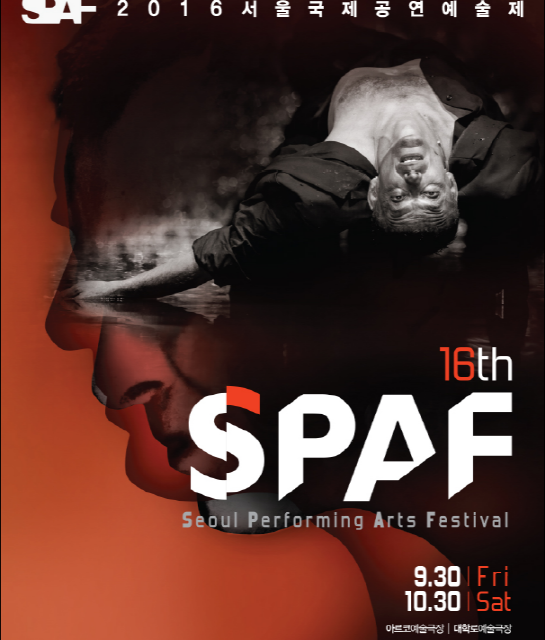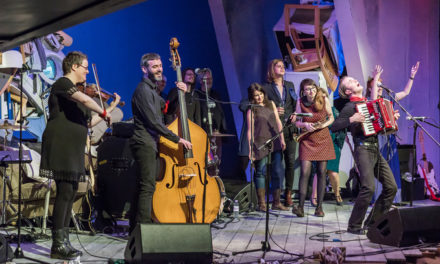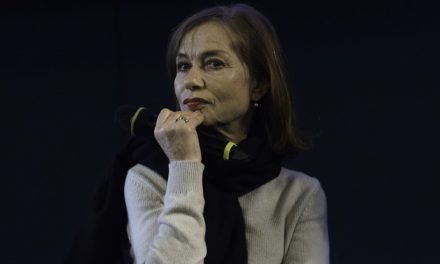The 2016 Seoul Performing Arts Festival (SPAF) opened on September 30th, initiating a month-long program of 17 theatre and dance productions from six countries. For the festival’s opening, Krystian Lupa and the Polski Theatre in Wroclaw were invited to present Woodcutters Holzfällen, a four-and-a-half hour multimedia stage adaptation of Thomas Bernhard’s novel.
Now in its sixteenth year, SPAF has grown into one of the most high-profile arts festivals in South Korea. Although the word is omitted in English to emphasize Seoul’s name and brand, the festival is actually called the Seoul International Performing Arts Festival in Korean. As Woodcutters Holzfällen illustrates, bringing a global perspective to Korean theatre audiences has been the cornerstone of SPAF’s artistic identity. Hosted by two organizations, Arts Council Korea (more commonly known as ARKO) and the Korea Arts Management Service, the festival serves as a vital platform for inviting notable productions from around the world and facilitating communication between Korean and foreign artists. Eleven Korean productions are featured alongside pieces from Poland, Belgium, Canada, Slovenia, and England.
Although they make up only a small proportion of the program, the festival also directly supports international collaborative projects. This year, SPAF co-produced Rosalind, a new dance piece by the James Cousins Company in England with Korean artists in the cast and creative team.
The Reunification of the Two Koreas (La réunification des deux Corées), written by Joäl Pommerat and directed by Cathy Rapin, is a Korean-French collaboration that premiered earlier this year in Seoul. Rapin is professor of French at Hanguk University of Foreign Studies and a co-founder of the company Theatre Francophonies. Notably, this production is billed as a domestic work (the cast is entirely Korean), blurring the distinction between “our” culture and “theirs,” an idea that the festival and Korean theatre in general still struggles with.
SPAF will also host the 10th Seoul Dance Collection competition, which runs simultaneously with the main festival. The final round of the competition will be followed by the Global Connection special program in which the previous year’s winners—Junghoon Kim, Boram Jun, Jinan Kang, and Minsun Choi—who have spent time in residencies and workshops abroad, showcase new work that they have developed with collaborators in Germany, Japan, and Singapore.
Other notable upcoming productions include the Slovenian National Theatre Drama Ljubljana’s Faust (following the National Theatre’s successful production of Stanisław Witkiewicz’s The Crazy Locomotive last year at SPAF) and the world premiere of distinguished contemporary pansori singer and theatre artist Ja-ram Lee’s new work Excuse Me, based on a short story by popular Korean writer Ae-ran Kim. Several other productions will premiere at SPAF, including Theatre Momggol’s physically active reflection on death The Grave Faraway, Choreographer Yong-geol Kim’s Memories of Shame, and Trust Dance Theatre’s About Liberty.
This year’s program is slightly smaller than last year’s (22 productions from 7 countries), perhaps reflecting the general decrease in government funding and support for the arts. A lot rests on the success of SPAF as the most prominent and longest-running international theatre festival in Korea.
SPAF runs until October 30th.
This post was written by the author in their personal capacity.The opinions expressed in this article are the author’s own and do not reflect the view of The Theatre Times, their staff or collaborators.
This post was written by Kee-Yoon Nahm.
The views expressed here belong to the author and do not necessarily reflect our views and opinions.

















